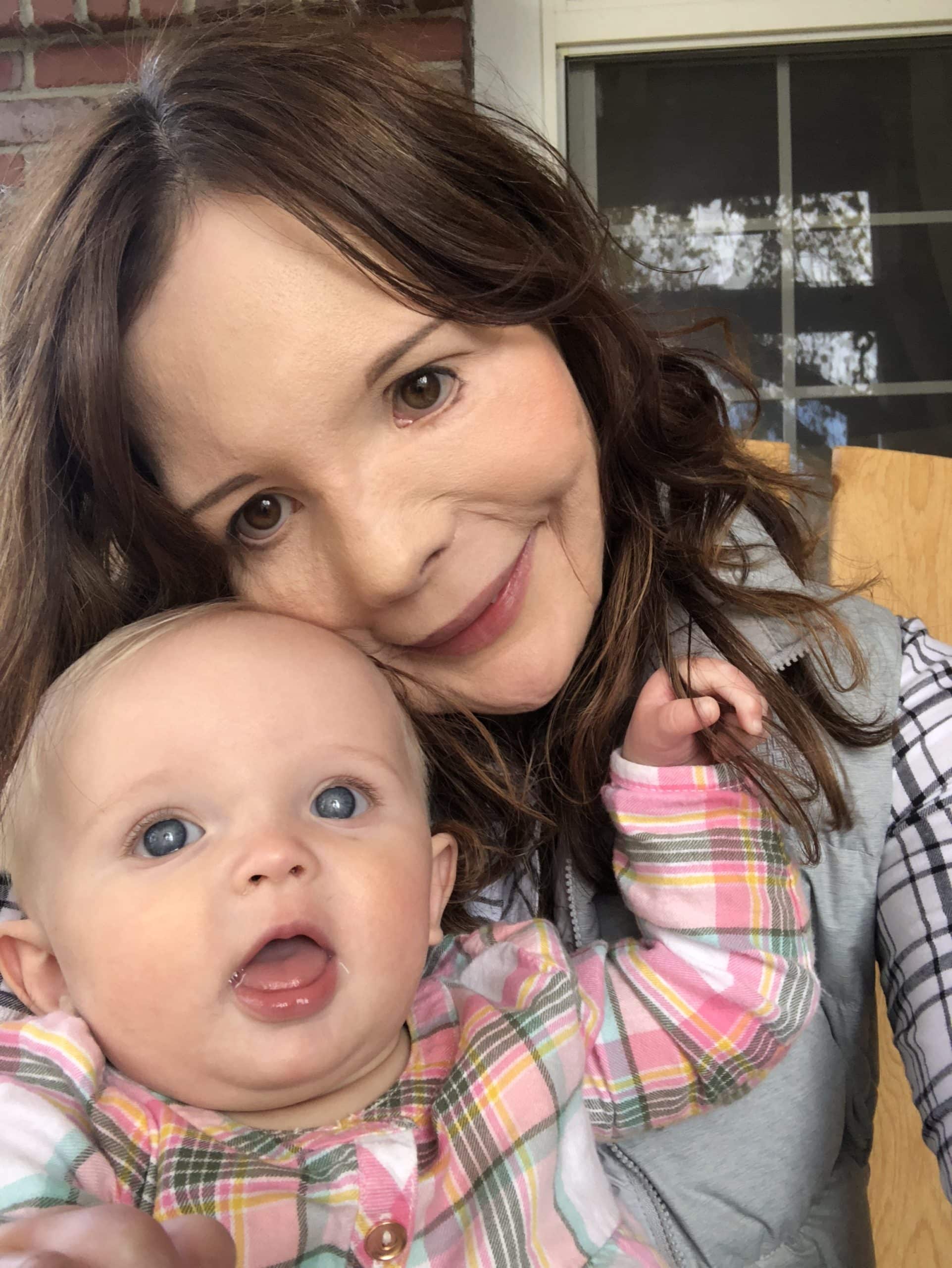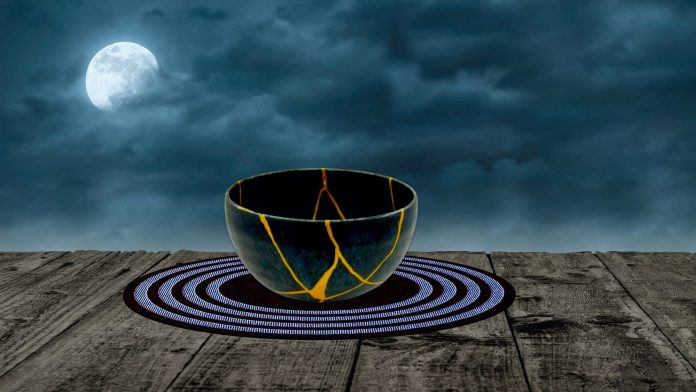By Melissa Akie Wiley
She looked at my face with disgust. My infant daughter cooed. I had just placed the baby into a shopping cart when the woman first approached. A stranger. She came too close. Staring at my daughter.
“Your baby is perfect,” she said. “She looks like a doll.”
I thanked her and pulled the cart away. Then the woman looked up at me and froze. She was silent and scurried to her car, as if I might run after her. I stood in front of the grocery store with my daughter. The automatic doors opened and closed but I didn’t move. My baby smiled. Too young to know that she is beautiful but her mother is disfigured.
My daughter is 2 years old now. She has round blue eyes and blonde hair. Her face inspires joy. My face is lopsided and scarred. It was a dog attack. I was five. I am not afraid of dogs. People always seem more concerned about my feelings toward dogs than they do about me. I have had over thirty surgeries and they helped. But my face is instantly noticeable. And the world is bothered by asymmetry and imperfection. I am also part Japanese and part white. My skin is too pale and my hair is too dark. People tell me that my daughter is perfect and then they say she looks nothing like me.
I have never looked like anyone. Bi-racial and disfigured is a cocktail of isolation. In childhood, I left my hometown of Boulder, Colorado every summer to visit my Japanese grandma in Tucson, Arizona. One summer I begged her to take me to a crowded shopping mall to buy doll clothes. I was 7 years old.
“Did you see that disgusting girl?” a woman said then.
She was talking to her daughter and looking directly at me.
The girl met my eyes and glared. Her hair twisted in a tight braid. I dreamed of ponytails but didn’t dare wear my hair up. I looked at the girl’s flawless appearance and sank into shame.
“So gross. I can’t believe she even came out of her house. She’s going to give me nightmares. She’s a monster,” the girl said. She was my age and already this callous.
The mother hugged her daughter and shot my grandma a scowl.
Then she said, “I’m so sorry, sweetie. People should know better but she’s clearly with some immigrant nanny who probably doesn’t even speak English.”
We stood in silence with our doll clothes. I felt devastation that my grandma should suffer due to my deformity. I tried to wedge myself behind stacks of toys to prevent further commentary. My grandma adjusted her glasses with shaky hands.
“I am sorry I don’t speak good English,” she said.
That day she bought more doll clothes than she could afford. She had worked as a hotel maid and saved tips in the form of crisp dollar bills. She set this carefully preserved money aside for me. When we approached the counter to pay for the items, the cashier said, “what’s wrong with her face?”
“Nothing wrong with my granddaughter,” she said, in broken English.
Once I asked my mom if she was mad at God. We were sitting in my grandma’s backyard in Tucson. Looking at the night sky. It’s easier to talk about God’s failings in the dark.
On the day of the dog attack, she had only looked away for a minute. Long enough to drain noodles from a boiling pan. When she turned around, the yard lay covered in blood and my face was gone.
“No,” she said. “Because you are extraordinary. You have shown me what it is to live next to suffering and become truly beautiful.”
People ask how I survived. The answer is my mom.
I want to tell her that I am not mad at God because he gave me her, and a good mom is worth more than a pretty face. I am thankful I learned this lesson in youth. When I still have more years on the earth with my mom.
Tragedy in childhood is a spiritual offering. Early redemption creates a fast track toward a more meaningful and grounded life. I shed the frivolousness of appearance, money, and status like a butterfly discards a cocoon. Because when the world rejected me, I sheltered only with the tender hearted and my own soul. And if we’re lucky, that is where we all eventually end up anyway.
My daughter will grow up with a disfigured mom.
On my daughter’s first day of Kindergarten, middle school, high school, and college, I will take photos of her and children will stare. After I am gone, they will ruin these moments of childhood by asking what’s wrong with her mom. I know this because these moments were taken from me, too.
I will want to stay in the car to spare her. But I will not. Instead I will show up for everything. And when we hear the comments, I will tell her that the Japanese have a word, Kintsugi, which roughly translates to golden repair. It is the Japanese art of taking broken pottery and patching it with gold so that the imperfection is illuminated instead of disguised. I will tell her that my mother’s love was the glue that made my flawed life golden. And my love will hold her together, too.
This pain will make my daughter kind. It will teach her that the world is unduly harsh because we are all more broken than whole. And she will learn that love is restorative and the only thing of true beauty. She will inherit this wisdom in childhood. When we are both still young enough to walk the earth together.
And when people ask, I hope she says, “There is nothing wrong with my mom”.

~~~~~~~~~~~~~~~~~~~~~~~~~~~

We love this book for so many reasons! The writing is incredible, the story is important, and seeing what life looks like when you survive the unthinkable is transformative. If you haven’t already, pick up a copy of Sanctuary, by Emily Rapp Black. Purchase at Bookshop.org or Amazon.
~~~~~~~~~~~~~~~~~~~~~~~~~~~
Anti-racist resources, because silence is not an option
~~~~~~~~~~~~~~~~~~~~~~~~~~~


This is beautiful. You are beautiful. And mean people suck. <3
Actually, your daughter looks quite like you. You both have kind eyes and smiles. Beautiful.
Beautiful lady and such a tender story of strength and family love.
What a story and how beautifully written. You (and your mother, and your grandmother) give voice to everything a woman hopes to be as a mother. What an inspiration. Thank you for telling your story. I look forward to reading your book some day!
The cruelty of the world breaks me. Your strength inspires me. You are beautiful inside and out. Love to you.